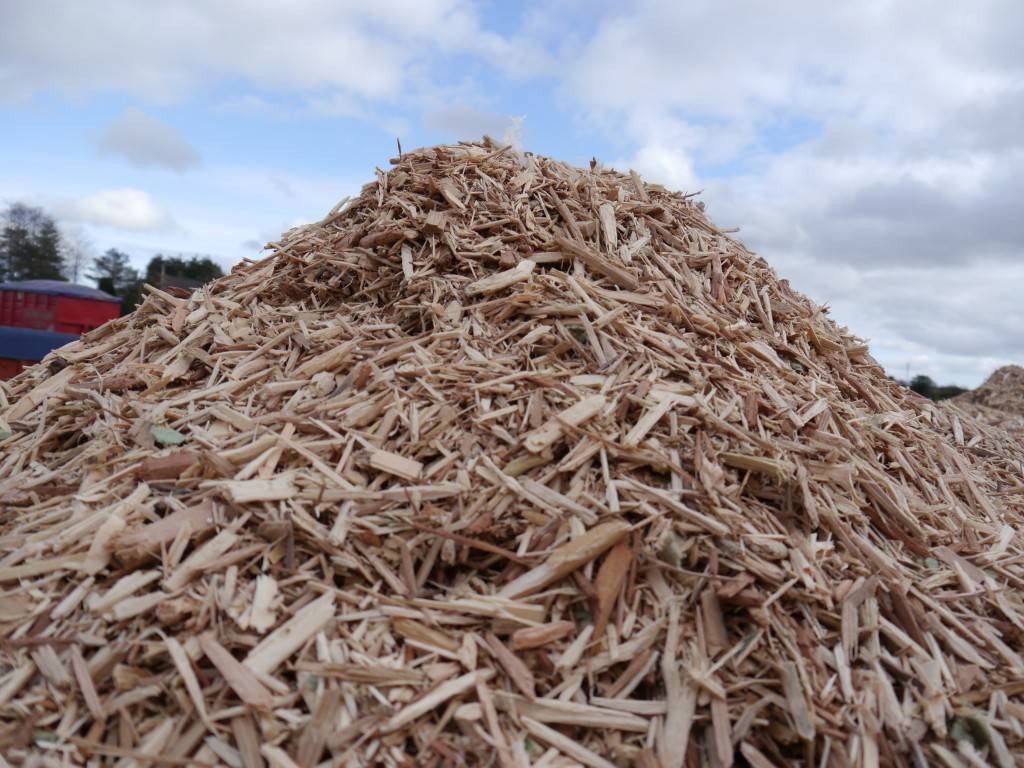Biomass Fuel
What is biomass fuel?
If you are new to biomass fuel, you may be wondering what it is. Put simply, biomass fuel is an organic material which is produced in a renewable manner to create heat or power. Currently, there are two popular components from the farming and joinery industry that make great biomass fuels – wood and animal wastes.
P.H Winterton and Son first started producing biomass fuel because joineries were struggling to get rid of surplus wood, and through this, we were able to market this as a product.
Biomass fuels have become increasingly popular in recent years due to their low energy densities. Here at P.H. Winterton & Son, we use grade A wood residue from sawmill waste collections which can be burnt in a boiler for industrial heating and electricity.
We offer two different types of biomass fuel –
- P16 Grade – A smaller size of wood chip
- P35 Grade – A grade wood with no contaminants present
Collaborating to Produce the Best Product
P.H Winterton and Son are proud to have worked with Cheshire-based organic recycling specialists CRJ Services for the processing of biomass fuel.
The key issues that affect the biomass fuel market are reliability, quality and sustainability of the material supply in the UK. We produce around 25 tonnes of biomass per week, with the product derived from ‘A’ grade wood residue from the joinery manufacturing industry. The challenge of the market is to ensure the exact sizing of uniformed chips for the specialist sectors we cater for, as the end product must be 40mm uniform-sized chip.
The chip needs to be metal-free and a regular size as biomass boilers will reject any out of size material or contaminated material.
CRJ supplied us with hire equipment to meet regular shredding requirements with the Doppstadt AK430 High-Speed Shredder recommended by their team to deal with the demand for biomass fuel. We collaborated to refine our production techniques and meet the production rates we required. The high-speed shredder was used together with an end roller magnet that removed all ferrous metal contaminants.
Gary Moores, Partner at P.H Winterton discusses working with CRJ,
“As quality and product specification is of the utmost importance to us, CRJ’s recommendation on the best machine for the job and how the product should be processed to ensure exact sizing and no contamination, was invaluable.
They understand the demands of our market and demonstrate a detailed knowledge of how to produce the best quality product, quickly and efficiently.”
How to Use Biomass Fuel
As a heating resource biomass fuel is very competitive with natural gas with typical applications such as heating small groups of houses, large individual houses, schools or glasshouses where heat isn’t readily available.
Biomass boilers vary in their tolerance of wet fuel, with most running well on chips with a moisture content higher than 30%.
Biomass combustion takes place in the following four stages which can occur simultaneously:
Warming and Drying – Warming and drying of woodchips have several advantages including weight reduction, preservation and an increase in heating value.
Pyrolysis – The thermal decomposition of materials at high temperatures in an inert atmosphere; which involves a change of chemical composition that’s irreversible.
Gasification – Converting organic or fossil fuel-based carbonaceous materials into carbon monoxide, hydrogen and carbon dioxide. Power derived from gasification of the resultant gas is a source of renewable energy as it was obtained from biomass.
Combustion of gases – Biomass fuels emit carbon dioxide when the carbon reacts with oxygen during combustion. This is because the biomass has absorbed the carbon from the CO2 in the atmosphere during its growth. The combustion of biomass is considered to be CO2 neutral.
Trusted Suppliers of Biomass Fuel
P.H Winterton and Son are proud to be part of the Government’s Biomass Fuel Supplier list. The Biomass Suppliers List (BSL) was introduced by the Department for Business, Energy and Industrial Strategy (BEIS), formerly the Department of Energy and Climate Change (DECC), in April 2014.
This allows Renewable Heating Incentive (RHI) participants to easily demonstrate to Ofgem that the fuel they are using in their biomass boilers meets the RHI sustainability criteria required to claim their RHI payments.
The Perfect Solution & Reduce Carbon Footprint
By choosing to use wood residue for biomass fuel, you will be able to generate your own heat and power whilst reducing your carbon footprint! The fuel you will get from us is environmentally friendly and highly efficient so that you can save money and help to protect the environment.
Our biomass fuel can be used in the commercial sector and we proudly support the agricultural sector. This allows companies to save thousands of pounds per year! At P.H. Winterton & Son, all wood is of uniform size and debris free from harmful contaminants such as metal – this is to reduce emissions of the gasses responsible for acid rain as well as cut down carbon dioxide emissions.
Due to the amazing quality of our biomass fuel, you can be sure to get a solution that you will love for many years – the benefits you will gain are endless!
Contact Us Today for more information
If you are interested in purchasing our biomass fuel or would like to find out more information about it, please do not hesitate to contact us. As a family run business, you are guaranteed friendly and expert advice and we will help you to decide whether biomass fuel is for you.
We currently provide biomass fuel in Staffordshire, Cheshire, Derbyshire, and Nottinghamshire. However, if you are further afield, we can make arrangements to deliver to your address!

